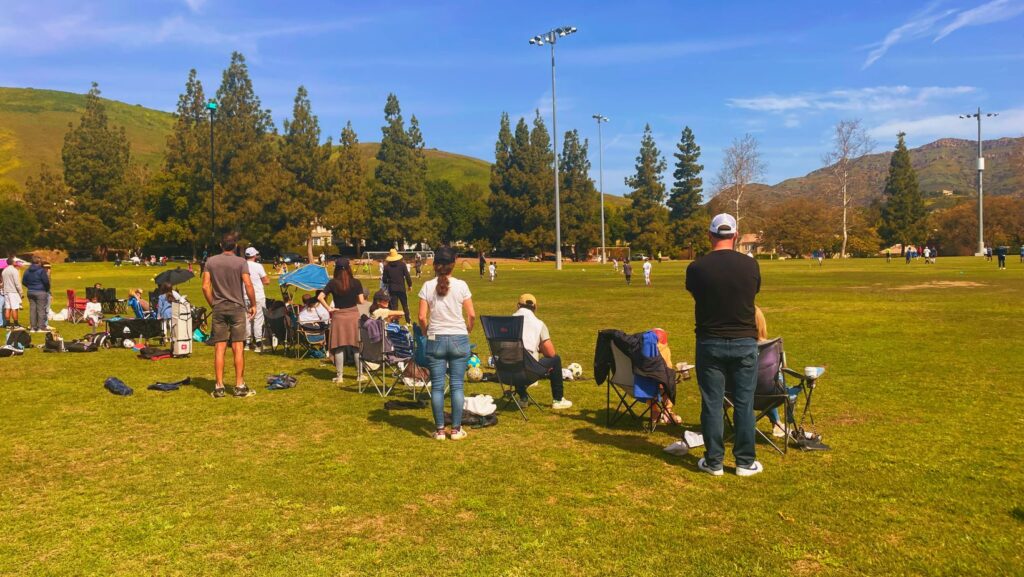5 Things Parents On Great Teams Do Differently
5 things parents on great teams do differently. Every team I’ve ever been a part of has its own identity. Some of the best teams have positive and respectful parents with their own unspoken ‘code of conduct’ on how to behave, whereas other teams have felt out of control with loud, gossipy, negative parents or even worse, toxic parents wreaking havoc on the team’s cohesiveness.
We all have a role and responsibility in creating a great team environment.
It’s called, Behavioral contagion, and psychologists explain it as “a form of social contagion involving the spread of behavior through a group. It refers to the propensity for a person to copy a certain behavior of others in the vicinity or to whom they have been exposed to.”
Simply put, behaviors become either accepted or unaccepted on a team based on what others are doing.
What does this mean to you? It means that positive behavior can just as easily become the norm on a team as bad behavior can. We learn what is acceptable by watching those around us. There is no lack of examples of youth sports parents doing the WRONG thing, but we need to start actively engaging in doing the right thing. Sports parents need to create an environment where bad behavior isn’t accepted, and it begins with each one of us.
What It Takes To Raise Successful Athletes
Here are five things parents on great teams get right:
- THEY SPEAK UP. If they have a good thought or idea, they aren’t afraid to communicate it. If there’s a tournament that will cost everyone $2000 for flights and hotels, and it doesn’t make sense for your team to go, say so. That summer camp that will set you back $700, speak up. If the team keeps losing players to injury, suggest the team research a better warm-up routine. Text it on the group chat, raise your hand at the meeting, or pull your coach or team parent aside. We are all afraid to rock the boat or piss off other parents or the coach, so we keep quiet when we know better.
- THEY DON’T ALLOW ONE BAD APPLE TO SPOIL THE BARREL. If a new kid joins the team and their parents are ‘yellers,’ they yell at the coach, the refs, or the kids. Even if they only yell at their own kid. Say something. When nobody else is around, kindly pull them aside and ask them to stop. Let them know that THIS team is supportive and that you’d like it to stay that way. Be kind, understanding (as many of us have been there), yet firm. Set a precedent that your team doesn’t do that.
- THEY DON’T TOLERATE INAPPROPRIATE BEHAVIOUR. When someone says or does something inappropriate, speak up. I once sat next to a Dad who yelled to an opposing player, “#17; there’s no way you’re 15, you’re huge, get off the field.” It was a physical game, and he was worried about his own daughter, who was much smaller, getting hurt. This Dad was not only out of line to speak about the girl’s appearance in any way, but why was he yelling anything at a player, to begin with? We all make mistakes, but it needs to be addressed. If not by you, ask the team parent to address the issue or the coach. This can be uncomfortable and awkward, but remember, we are dealing with kids, and all of them (even the opposing team) should be treated like they are our own.
- THEY SPEAK TO THE COACH WHEN NEEDED. Don’t fear your coach. Remember, they fear us as much as we fear them, but sometimes a conversation is needed. If something is happening that impacts the team or your child and needs attention, don’t be afraid to speak up. Have direct, clear conversations about the issues at hand. If, for some reason, the coach ‘punishes’ your child for this, then ask yourself if you want your child coached by this person, and it may be time to make a change.
- THEY SET A GOOD EXAMPLE. Behavior contagion is real. If we each carry ourselves with grace, kindness, and positivity, the rest of the team will be more apt to follow suit. If we don’t, then they won’t. It’s simple. Don’t gossip or talk poorly about other players, parents, or the coach. Set an example, and if you have a slip-up, apologize, learn, and move forward. Apologizing to other parents lets them know that A) It wasn’t acceptable behavior and B) It’s ok to make mistakes. Own it.
It’s not just the child that joins a team; the parents also do. And if sports parents can create a positive environment, the trickle-down effect it will have on the kids can be enormous.
The mother of three daughters who play or played sports, and a former division 1 basketball player, Asia has dedicated the greater part of the last 14 years to her daughters’ various activities, a combination of club soccer, basketball, field hockey, volleyball, and water polo. She has schlepped her kids to some 7-8 practices a week and attended tournaments or games most weekends. Most of the time, she has loved it, but along the way, she often wondered whether there wasn’t a better way. This question was the genesis of I Love To Watch You Play. Linktree
